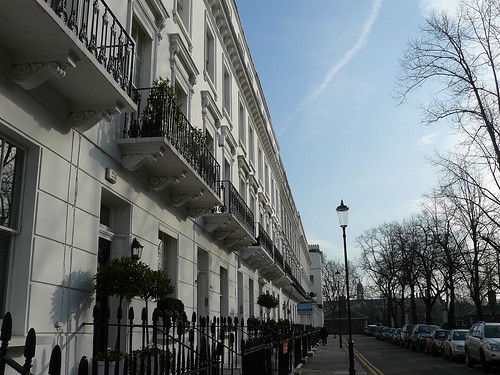Chelsea’s £1bn spending spree still isn’t enough
Chelsea #Chelsea

There will probably come a point in the next three weeks when Todd Boehly crashes through the £1bn barrier. There is an old joke that the way to make a small fortune in football is to start off with a big one. Boehly may be putting it into practice. If billionaires tend to be required to own the bigger clubs these days, they rarely burn through £1bn as quickly. Boehly and co might within 15 months. Moises Caicedo should take Chelsea past £900m. Someone else, whether Romeo Lavia, a forward or a goalkeeper, could swell Chelsea’s expenditure into 10 figures.
It stands at around £800m now, a record outlay in such a short time, and at a club that Ken Bates bought for £1 in 1982. Chelsea’s former owner had his faults but got rather more value for money than his latest successor.
As Mauricio Pochettino’s reign began with a draw against Liverpool – and after the depths Chelsea plummeted last season, avoiding defeat at Stamford Bridge felt a step in the right direction – three of starting 11 were products of the academy, a fourth, Thiago Silva, arrived on a free transfer and a fifth, Ben Chilwell, was bought when Roman Abramovich still owned the club. The vast amount of Chelsea’s money went on players not in this team; some 45 per cent of the starters were at the club before Boehly.
But it is Pochettino’s job to make sense of the madness, to take one of the strangest spending sprees in footballing history and add strategy. Dressed in Diego Simeone’s dress code of an immaculate dark suit and black shirt and tie, his ever-present smile making him look like a friendly mafioso, he has been brought in to clean up a mess others made. He is overseeing a cull: 12 players have gone this summer, a number that could rise to 18 or 19 in the next few weeks. He has to bury much of Chelsea’s recent history. “We don’t talk about the past,” he said. “We want to talk about the present and the future.” But Chelsea’s past is essential to understand his predicament, their mistakes the context of his challenge.
Mauricio Pochettino has returned to the Premier League as Chelsea boss (PA Wire)
And, amid it all, wild illogicality persists. Chelsea used to have the world’s most expensive goalkeeper and the man named the best in the world in 2021, in Kepa Arrizabalaga and Edouard Mendy. With the Spaniard probably bound for Real Madrid – Pochettino explaining a strange willingness to do them a favour by saying he only wants players committed to Chelsea – they started with Robert Sanchez, who finished last season as Brighton’s second choice.
Chelsea’s fondness for buying all things Brighton was established long before the Caicedo saga: Marc Cucurella, last summer’s £62m signing, looks like the fourth-choice left-back now and was an unused substitute. Levi Colwill, the centre-back Brighton loaned last season, played as an auxiliary left-back against Mohamed Salah. If that gambit backfired, using an actual left-back Ben Chilwell as, in effect, a left winger reaped a dividend as he exuded verve in the final third. In isolation, Chilwell’s attacking influence was a triumph of creative thinking by Pochettino; in the broader picture, it highlighted Chelsea’s confused thinking. Mykhailo Mudryk, January’s £88m buy, was a left winger who began on the bench against Liverpool, just as he was when he made his debut in January.
It may prove the product of a bespoke gameplan, with Chilwell deployed to shadow Trent Alexander-Arnold. Pochettino unveiled a hybrid formation, defending with four at the back, building up with three. It showed the confidence of a manager capable of implementing such ideas. There was, though, no shortage of ideas from either Graham Potter or Frank Lampard: perhaps befuddled by the sheer volume of players, they never turned them into something coherent. There was a point in the first half when Chelsea, with their new goalkeeper, new defence, new midfield, new forward line and new manager, understandably lacked the cogency and chemistry Liverpool possessed. That Pochettino’s team showed the character to equalise, the intent to pass forwards quicker and the speed they often lacked last season all boded well. This team should score more than the meagre 38 league goals the sorry class of 2022-23 mustered.
It helped that they had a bona fide No. 9. Nicolas Jackson’s finishing was erratic but he had defence-stretching acceleration and made 44 off-the-ball runs; Chelsea never resolved the conundrum of Kai Havertz, the enigmatic false nine, while the reality that the only specialist striker bought in the first £600m of that spending splurge was a declining Pierre-Emerick Aubameyang amounted to an inexplicable omission.
Enter Jackson, along with an already injured Christopher Nkunku. Like the sight of Conor Gallagher anchoring the midfield, a job that was intended for Caicedo, it highlighted that Chelsea’s business is not finished. “We need good players and to improve the squad,” said Pochettino. “That’s what Chelsea managers want and they usually get it,” responded Jurgen Klopp tartly.
In Pochettino’s case, he will almost certainly get Caicedo. And yet he had a point: it is ridiculous Chelsea want more players but, £800m in, they look short-staffed in defensive midfield and in goal. They are a club in permanent revolution, forever in talks about dozens of players. “It is going to help when the transfer window closes,” Pochettino argued; team-building, not transfers, should become the priority. But when the window shuts, Chelsea’s expenditure may have topped £1bn. And, while Pochettino is a dramatic upgrade on his immediate predecessors, they may not have a better manager or team than when Boehly started.